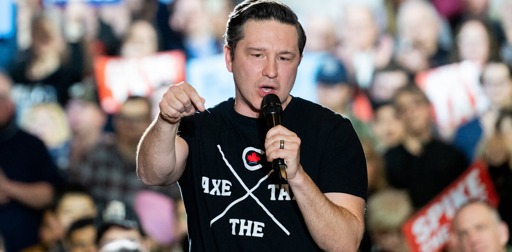- cross-posted to:
- [email protected]
- [email protected]
- cross-posted to:
- [email protected]
- [email protected]
The carbon tax is a so-called steering tax. Its goal is to change people’s behaviour, not to raise revenue for the government. However, the current version of the carbon tax in place in Canada and many other countries does not change people’s behaviour as effectively as it could and should. To see why, we consider two frequently ignored facts.
First, rich people emit considerably more than the average person. Studies on socioenvironmental inequality estimate that the top 10 per cent of emitters are responsible for about 50 per cent of individual carbon emissions. Think of private jets, which emit up to 4.5 tons of CO2 equivalent (tCO2e) per hour. That is three times as much as the average human on the planet can emit per year if we want to meet our climate targets.
Second, someone in the top 10 per cent of incomes in Canada, that is someone who in 2022 made more than $106,300 after tax, will not even bat an eye at the current carbon price of $80 per tCO2e, let alone change their consumption habits. For context, $80 per tCO2e translates into under 18 cents per litre of gasoline at the pump.
Put simply, by its very nature a flat carbon tax that ignores socioenvironmental inequality and charges everyone the same is both unequal and ineffective climate policy. A progressive carbon tax would change that.
When communities have a common goal, it matters for members of the community to feel that everyone is pulling their weight to achieve that goal. Today’s carbon tax fails this test. The burden of adjustment in terms of reducing emissions falls squarely on low-income Canadians, whereas the wealthy just shrug it off and pay the tax. Moreover, the fact that some portion of today’s income and wealth inequalities are perceived as unjust to begin with adds insult to injury.



The editorial ignores the history of the carbon tax in Canada:
The Liberals fucked up when they implemented it and called it a tax, instead of a rebate.
The Liberals fucked up when they gave out rebates by calling them ECC benefits (IIRC). They didn’t fix that until last year. Many people receiving the rebate didn’t know what it was.
Trudeau fucked up when he decided to exempt fUeL OiL for his Atlantic caucus. That reopened the carbon tax debate and gave critics ammunition.
(I’m skipping other minor fuckups for the sake of brevity)
Let’s not pretend that the Liberals would have produced a better policy or done a better job at implementing it. We can all think of a couple of other files that they’ve also fucked up.
Having said that, I’m all for an undefined GHG tax on wealthy Canadians and corporations. The problem is what the Liberals discovered: doing it right is hard, and winning the PR battle is even harder.